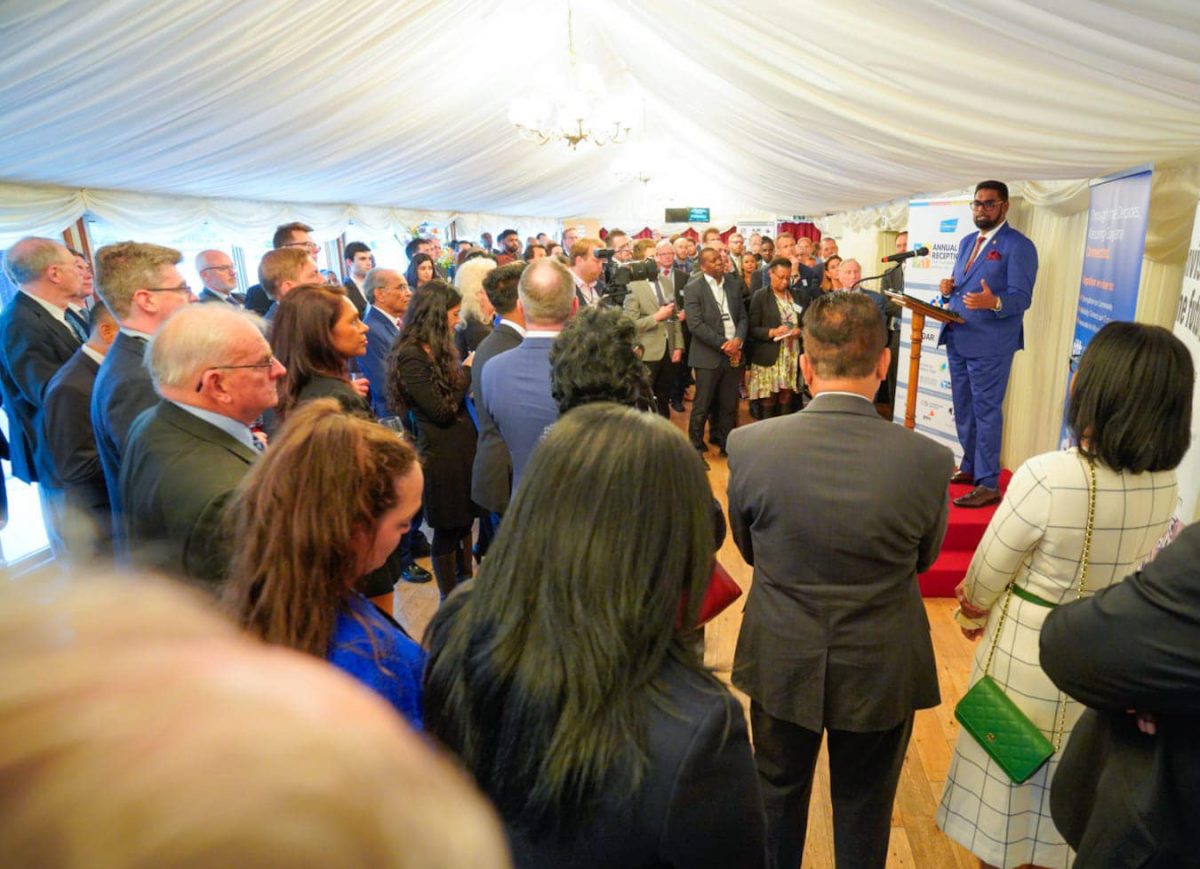Speaking to scores of potential UK investors, President Irfaan Ali yesterday highlighted opportunities in tourism and cutting the Caribbean’s high food import bill.
He made the pitch as he addressed the Caribbean Council’s House of Lords Annual Reception in London, a statement from the Office of the President said.
Ali said that as a tourism hub and through its strategic location, the Caribbean has access to over 220 million people directly or through trade agreements.
“We have complete trade agreements with Venezuela, Colombia, Cuba, the Dominican Republic, Costa Rica, and of course, we are part of the economic partnership agreement”, he added.
He pointed to the region’s food import bill and their market values; these include palm oil worth US$142m; cocoa worth US$48.5m; spices worth US$10.6m and beef and beef products worth US$40m among others.
The region’s food import bill, he added, will grow to at least US$10b in the immediate future.
The President said that the region has the capacity to produce what it will consume and that it “has an investment framework that allows great competitiveness” which would benefit the business community in the UK and the rest of Europe.
He told the investors that the Caribbean is already looking to be more self-sufficient and to produce more. He informed them about the 25% reduction in the food importation bill that is to be achieved by 2025.
Ali, who met British Prime Minister Boris Johnson earlier in the day, reiterated that the development and prosperity of Guyana must be the prosperity of the region.
He called for a new perspective and renewed interest in the region given the present global environment.
“What is needed now is a new development of the relationship and new perspective—a renewed interest in the Caribbean because there is tremendous opportunity and given what is taking place globally, the Caribbean is presenting itself as an interesting solution for investors and investments”, the statement said.
He told the gathering that despite Guyana’s growing oil and gas sector, the economy would be multifaceted.
“We see ourselves as an economy in transition that is allowed this great blessing of oil as a mode of taking us into the transition we so want.”
The Government, he asserted, will use the resources to invest in other sectors including infrastructure expansion, ICT, tourism, health and education under a “new wave of development”.
He said the projection is that Guyana’s oil and gas sector will have a “long future” which will provide the opportunity to advance the other sectors.
The President also outlined Guyana’s leading role in the environment, climate change mitigation and vast natural resources including freshwater reserves.
He also spoke about the Government’s plan to reduce the cost of energy by 50% by 2025. “When we do that, we now become competitive with any other producer in the region”, he declared.





